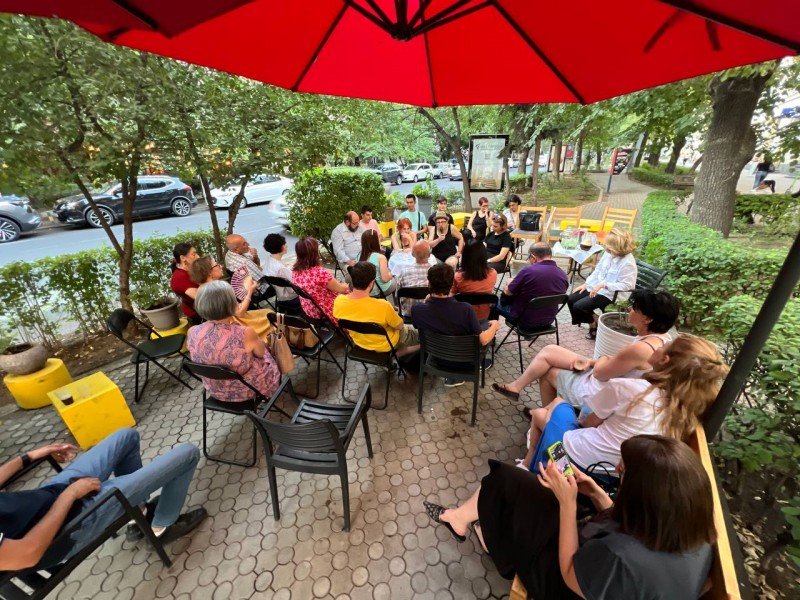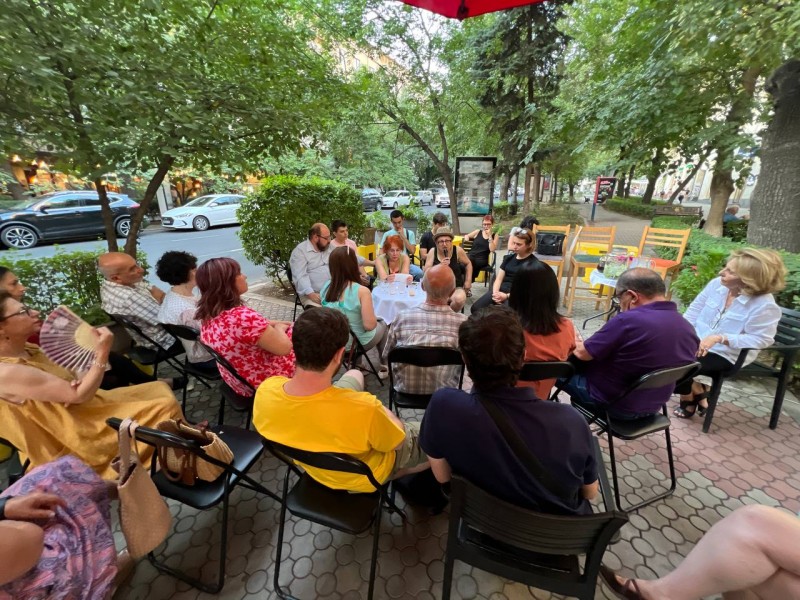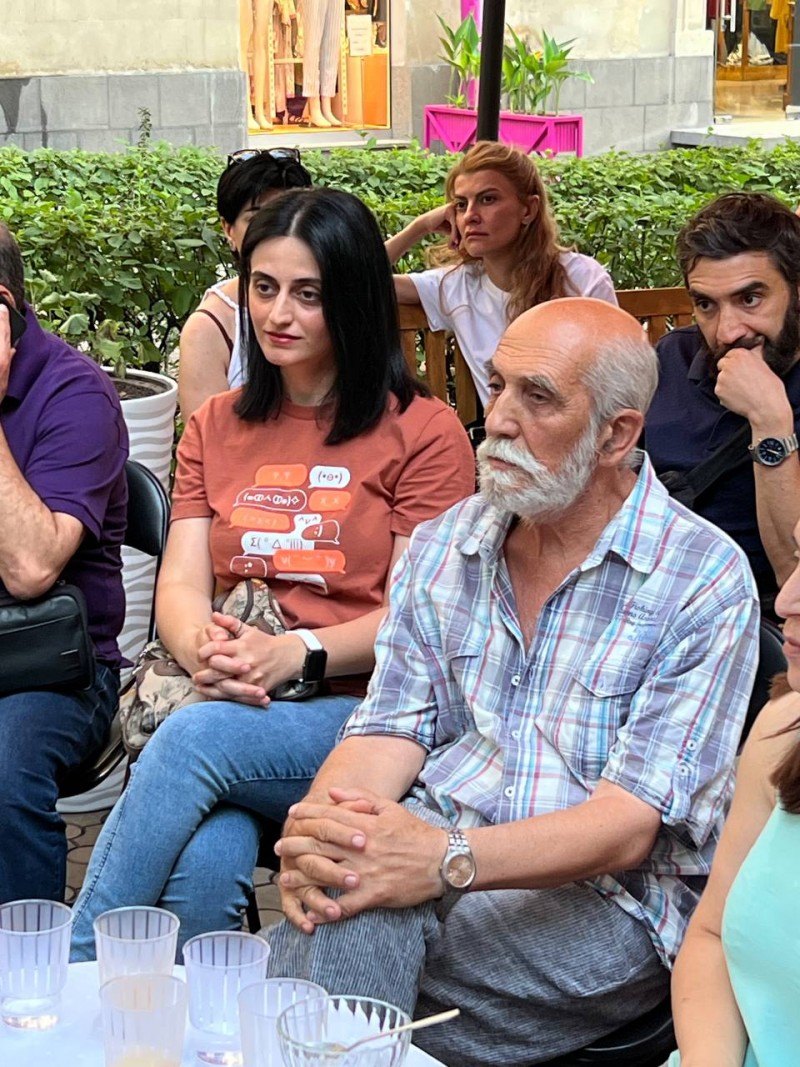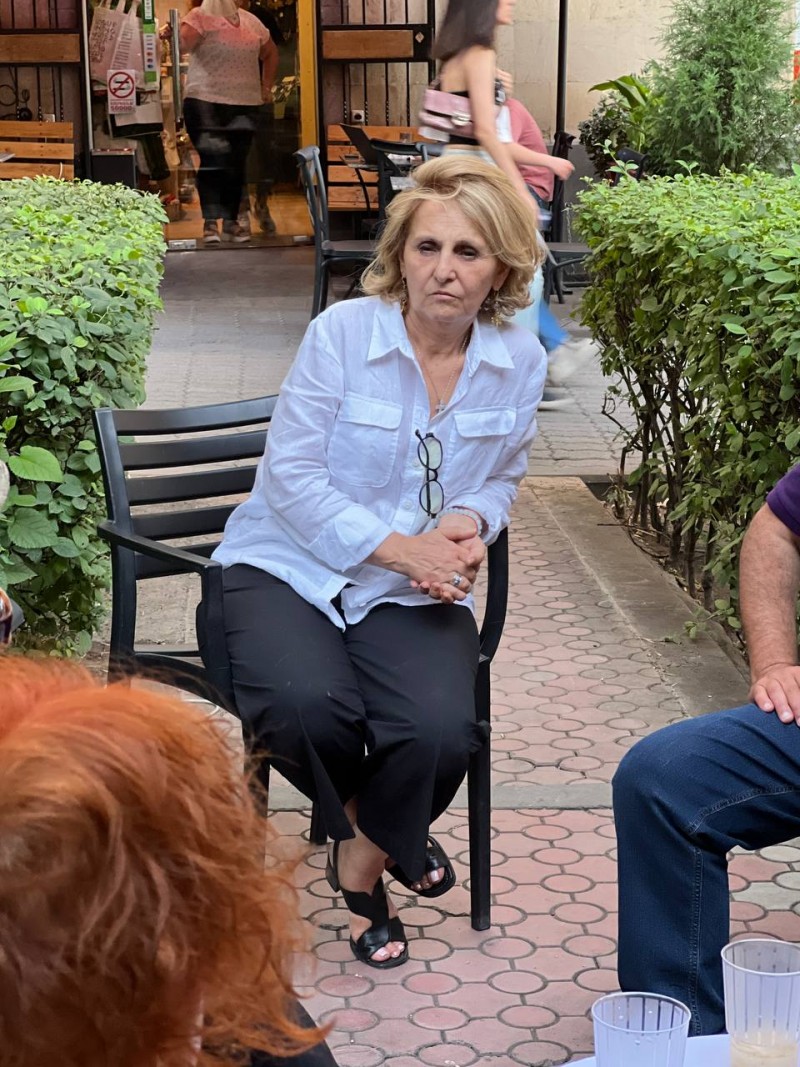
Newmag publishing house and “ArtBridge” bookstore-cafe initiated literary discussions. The first meeting was dedicated to the re-publishing of the “Inknagir” literary magazine, with the topic being “Literature in Extraordinary Times”. In 2023, the 10th issue of the magazine was published on the initiative of Newmag and with the support of the “Renaissance” Foundation, the theme of which was war.
Violet Grigoryan, the editor of the journal, Marine Petrosyan, a writer and publicist and the authors of works published in the journal took part in the discussion dedicated to the literary magazine. According to Marine Petrosyan, the connection between literature and reality is more than felt today because most citizens want to help the country and their compatriots but do not know how. Now, one of the strongest weapons in Armenia is literature, as art and literature have emerged from the demands of life.
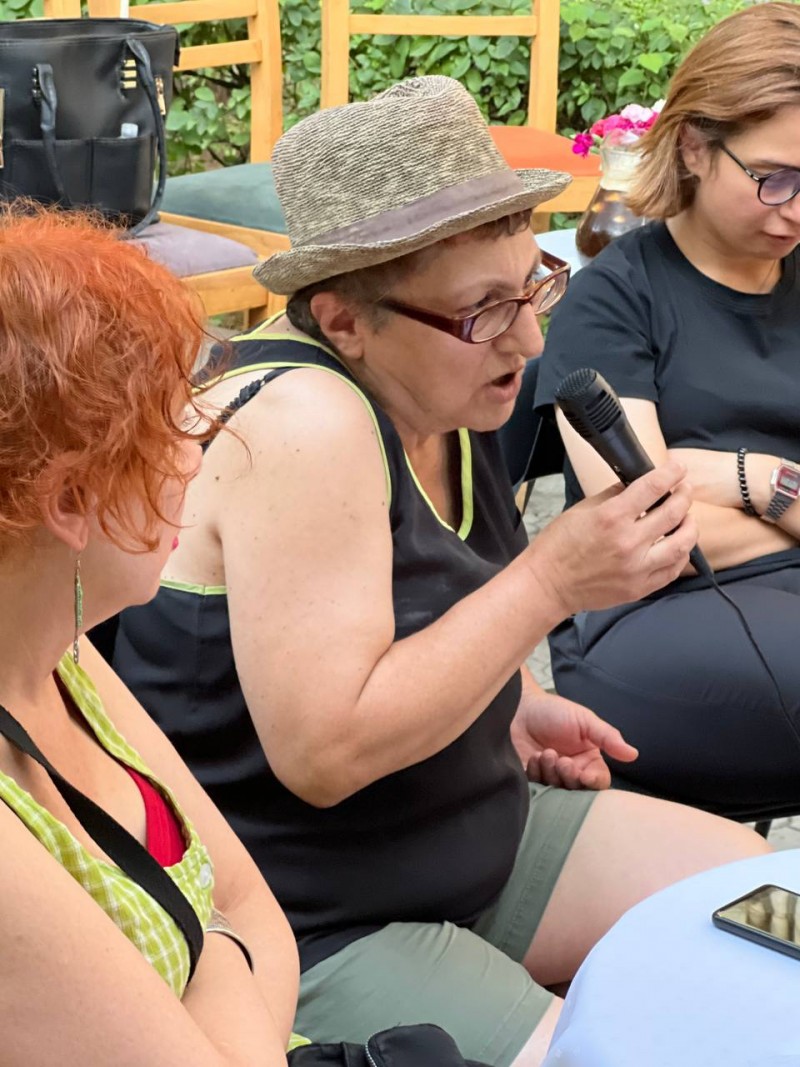
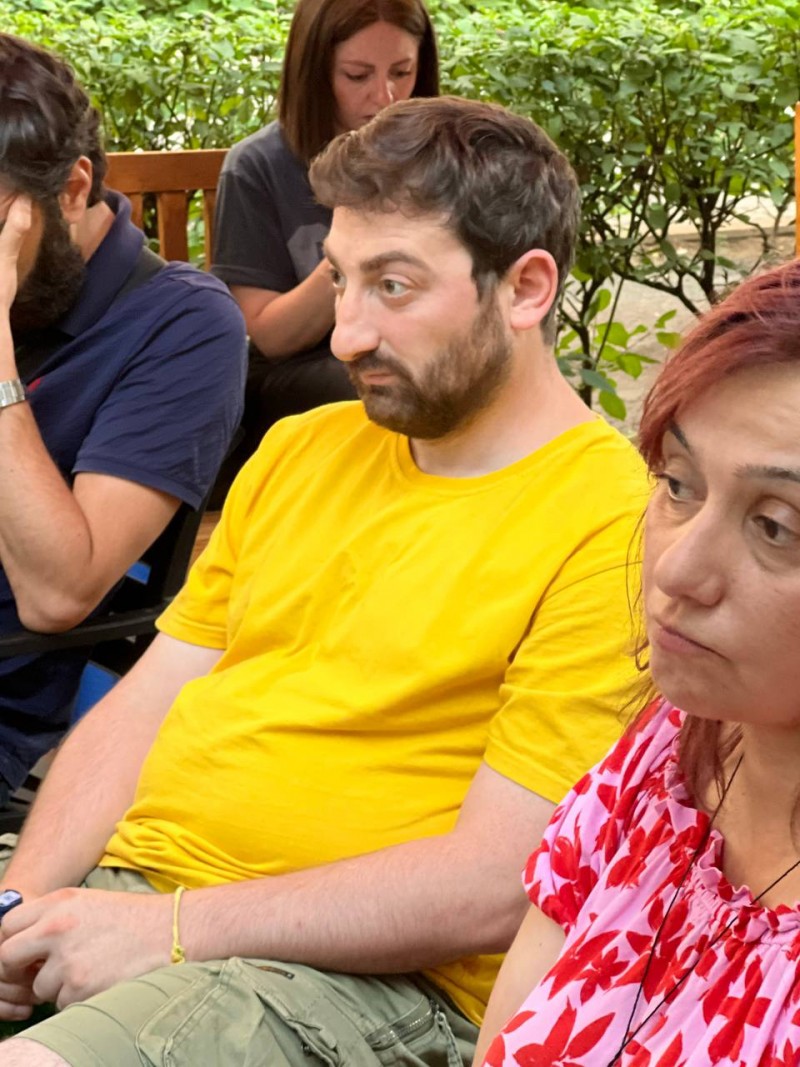
“In other words, a human being overcame his/her fear of death with art and literature. Today, Armenia is facing death, and in the face of that death, strength is needed. Politics in the classical sense does not work in Armenia because it has become a toy in the hands of the stronger. And in this situation, when Armenia is powerless and has lost political and other protective measures, that power lies within me—it is the power of literature. I was once a desperate, sad, and powerless person, but literature helped me and changed me. Today, in this state of Armenia, it is absurd to simply create literature for prizes and other accolades. Today, literature should harness an entirely feasible force.”
Poet Lusine Yeghyan, one of the authors of the literary magazine, sees a certain danger in the assertion that literature can change something in our reality. “We say, yes, it should be changed; immediately the next question is how and what should be done. I avoid answering that question because if I answer yes, I have to somehow realize and believe in those changes, which is the most difficult thing nowadays. There is something risky in all of this.”
Novelist and translator Gurgen Khanjyan was also present at the meeting. According to him, until the last 7 years, he felt responsibility only towards his own “I”. “I felt responsible for my sins, my conscience, but then the time came when, in a sense of my last novel, maybe literature within it suffered because I took the step of responsibility. But one thing is clear: if you write quickly, something will be spoiled; if you write slowly, time passes, and you won’t get anywhere. There are such problems.”
And why do writers avoid writing works about the war or the current situation of the country? Artak Aleksanyan, the CEO of Nemag Publishing House often encounters such criticisms and accusations. “I was inclined to join that charge myself, but I didn’t. I think that writers are also human beings, and if they understand what is happening, it cannot but affect their works. They should have time to digest first, and it’s not like this story is over; we are living in aftershocks, and just as you try to digest the defeat a little, a new war starts; you want to digest one tragedy, another one follows. In this tectonism, it is difficult to expect that a person can have enough thought to create a literary work. In this way, I do not blame at all; the writer must first see himself in those times, try to understand his/her inner self, and then put it on paper. Therefore, it is impossible to expect that the writer can have a coherent thought in the still ongoing bleeding; but on the other hand, to say that our reality can be bypassed in general is wrong because we need guides, expert thought.”
Violet Grigoryan, the editor of “Inknagir” literary magazine, does not agree with those who think that literature is therapy. “I can’t stand one practice: using literature as therapy. It means turning literature into a tool, writing so that your emotions come out of your mind, etc., but literature is much more. Forget that you need to heal with literature: literature is a weapon, not a panacea.”
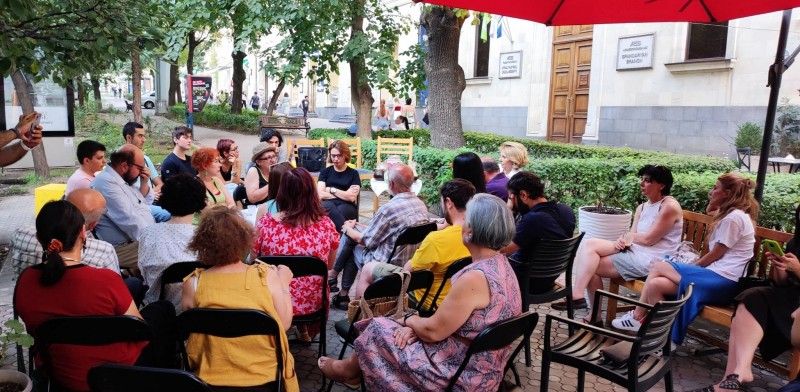
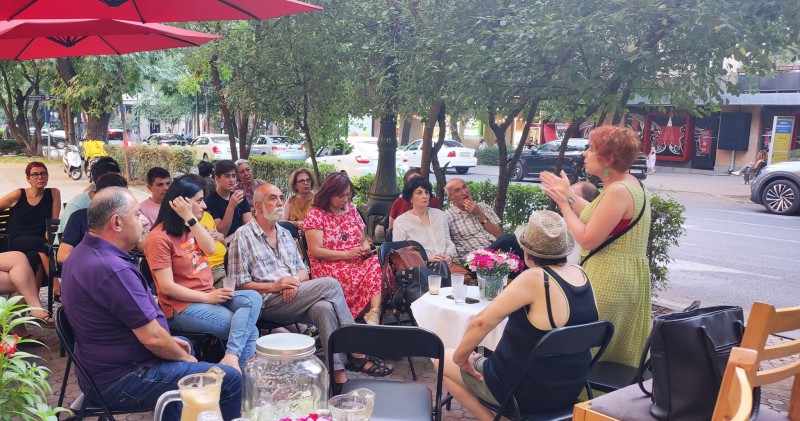
Writer, and politician Aghvan Vardanyan formulated for himself long ago what literature is. “Literature is strong when it is an art. Can it turn out in such a way, also dictated by today’s situation or concerns, that with what we do in that direction, we kill literature, and we do not save anything?”
According to director Hovhannes Ishkhanyan, there is also the question of the writer’s responsibility. The writer writes a book while sitting at home and reading the press. “In other words, literature does not engage in fieldwork; it does not venture into those areas where disaster strikes. It tries to express its emotions through Yerevan and is unable to create. But in order to create, writers must go and live in those regions where disaster occurs, and they will naturally draw inspiration from that situation to prevent similar disasters in the future.”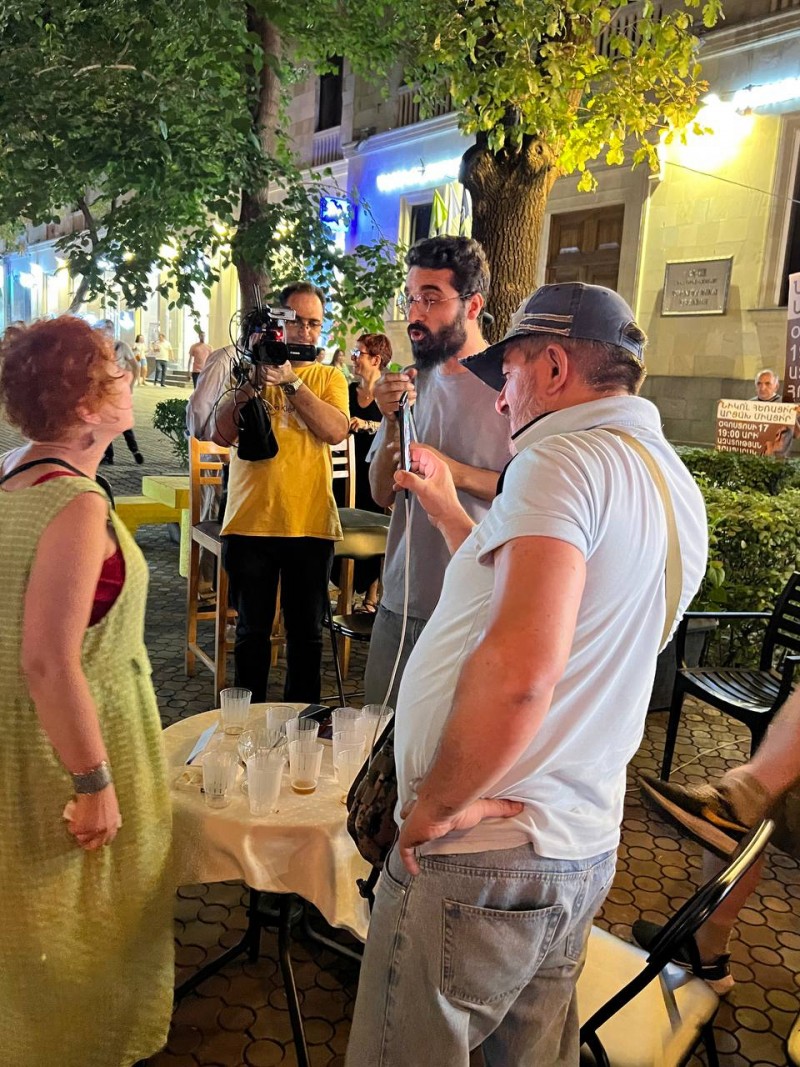

A book is not a word, words do not achieve success in the struggle. Words change nothing. During the discussion, Violet Grigoryan spoke about Dadaism and gave as an example the poem with repeated words “Blah-blah-blah”, which is uttered in response to political populism. And just then, the members of the “Sasna Tsrer” group were passing in front of “Art Bridge”. In response to their loudspeaker, Violet Grigoryan raised “Blah-blah-blah”, which did not please the marchers. They approached Violet Grigoryan to understand the context. Violet explained that the context was literary, not political. The conversation ended with an agreement: everyone is fighting for the country on their own front.

